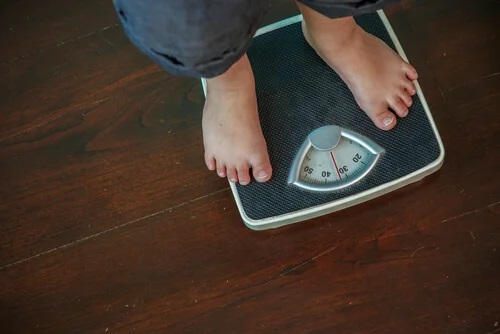The Stress Caused by Unemployment

In addition to providing income, employment is a central part of adult life. It allows human beings to develop their skills, develop social relationships, and build their identity. It’s also a source of general well-being. For this reason, being unemployed has a number of consequences that we shouldn’t ignore. One of the most significant effects is the stress caused by unemployment.
This stress has a great impact on health, both physical and mental. The stress caused by unemployment is fed by different sources. On the one hand, the financial difficulties that unemployment causes can produce extremely high stress levels.
On the other hand, we have decreased well-being, the feeling of social isolation, and a lack of support. In these cases, research has shown that there are significantly higher stress levels in unemployed people than in the general population.

The health impact of unemployment
The stress caused by unemployment, apart from being a problem in itself, is related to other health issues. On the one hand, we can associate it with lower levels of subjective well-being and higher levels of anxiety.
In one study, researchers found that, when someone became unemployed, their levels of well-being dropped drastically and their anxiety increased. They then tend to stabilize for a while, and, after that, their levels often shoot up again when long-term unemployment sets in.
Unemployed people show signs of worsened mental health, and this could be seen in increased psychiatric and psychological consultations, as well as a higher number of diagnoses. Moreover, these effects appear to be independent of people’s income levels.
Unemployment stress
There’s a clear link between unemployment stress and a series of physiological changes that, if sustained over time, are harmful to health.
When you experience a situation and consider it to be stressful, then your body produces certain changes to face that situation. In this case, the hypothalamic-pituitary-adrenal (HPA) axis responds to the stressful stimulus by secreting the hormone cortisol.
This process in which a cortisol spike occurs is natural and adaptive. However, in a stressful situation, the continuous release of this hormone leads to imbalances in the activation of the HPA axis and, thus, to neuroendocrine changes that are bad for your health.
Several studies have shown these cortisol imbalances in unemployed people, and have clearly proven that, in periods of unemployment, there’s an increase in levels. However, these changes depend on how long a person is out of work and their age.
Research also seems to show that young people show a continuous increase in cortisol levels, as the duration of unemployment increases. Adults, however, experience an increase in the first six months, and then it stabilizes at a high level.
Physical consequences
The stress that unemployed people experience has a strong association with several diseases. These are the most significant:
Cardiovascular problems
In addition to an abnormal cortisol release, unemployment also shows links with elevated levels of C-reactive protein and fibrinogen. These are closely related to cardiovascular risk. From this, we can deduce that unemployed people show a higher cardiovascular risk than the rest of the population.
Numerous studies have shown that long-term unemployment has a significant link to acute myocardial infarction and stroke. There’s also a connection to coronary heart disease.
Even so, we should be cautious before reading too much into these results, due to the many varied factors that influence the development of these disorders.
Obesity
Weight alterations have also been found in the unemployed, and there’s a clear relationship here with cardiovascular risk and cortisol. In general, the results show that weight gain is proportional to the duration of unemployment.
This could be due to a change in diet and decreased income. Researchers have observed that unemployed people tend to consume cheaper and unhealthier products.
It also seems that another factor related to weight change in the unemployed is smoking. Research shows that unemployed smokers experience a reduction in weight, while non-smokers tend to gain weight.

Type 2 diabetes
Type 2 diabetes is also associated with irregular cortisol patterns, as well as obesity and cardiovascular risk. Therefore, it’s easy to understand how unemployment has also been linked to the risk of developing this disease.
For example, in a study by Rautio et al. (2017) that took body mass index, level of physical activity, and other sociodemographic factors into account, the unemployed were at a higher risk for pre-diabetes and type 2 diabetes.
In short, unemployment has consequences beyond the clear psychological factors. These results are of particular relevance, because poor health can complicate the already difficult task of finding a job.
Because of this, it’s essential for these people to handle and manage their stress and adopt healthier habits.
In addition to providing income, employment is a central part of adult life. It allows human beings to develop their skills, develop social relationships, and build their identity. It’s also a source of general well-being. For this reason, being unemployed has a number of consequences that we shouldn’t ignore. One of the most significant effects is the stress caused by unemployment.
This stress has a great impact on health, both physical and mental. The stress caused by unemployment is fed by different sources. On the one hand, the financial difficulties that unemployment causes can produce extremely high stress levels.
On the other hand, we have decreased well-being, the feeling of social isolation, and a lack of support. In these cases, research has shown that there are significantly higher stress levels in unemployed people than in the general population.

The health impact of unemployment
The stress caused by unemployment, apart from being a problem in itself, is related to other health issues. On the one hand, we can associate it with lower levels of subjective well-being and higher levels of anxiety.
In one study, researchers found that, when someone became unemployed, their levels of well-being dropped drastically and their anxiety increased. They then tend to stabilize for a while, and, after that, their levels often shoot up again when long-term unemployment sets in.
Unemployed people show signs of worsened mental health, and this could be seen in increased psychiatric and psychological consultations, as well as a higher number of diagnoses. Moreover, these effects appear to be independent of people’s income levels.
Unemployment stress
There’s a clear link between unemployment stress and a series of physiological changes that, if sustained over time, are harmful to health.
When you experience a situation and consider it to be stressful, then your body produces certain changes to face that situation. In this case, the hypothalamic-pituitary-adrenal (HPA) axis responds to the stressful stimulus by secreting the hormone cortisol.
This process in which a cortisol spike occurs is natural and adaptive. However, in a stressful situation, the continuous release of this hormone leads to imbalances in the activation of the HPA axis and, thus, to neuroendocrine changes that are bad for your health.
Several studies have shown these cortisol imbalances in unemployed people, and have clearly proven that, in periods of unemployment, there’s an increase in levels. However, these changes depend on how long a person is out of work and their age.
Research also seems to show that young people show a continuous increase in cortisol levels, as the duration of unemployment increases. Adults, however, experience an increase in the first six months, and then it stabilizes at a high level.
Physical consequences
The stress that unemployed people experience has a strong association with several diseases. These are the most significant:
Cardiovascular problems
In addition to an abnormal cortisol release, unemployment also shows links with elevated levels of C-reactive protein and fibrinogen. These are closely related to cardiovascular risk. From this, we can deduce that unemployed people show a higher cardiovascular risk than the rest of the population.
Numerous studies have shown that long-term unemployment has a significant link to acute myocardial infarction and stroke. There’s also a connection to coronary heart disease.
Even so, we should be cautious before reading too much into these results, due to the many varied factors that influence the development of these disorders.
Obesity
Weight alterations have also been found in the unemployed, and there’s a clear relationship here with cardiovascular risk and cortisol. In general, the results show that weight gain is proportional to the duration of unemployment.
This could be due to a change in diet and decreased income. Researchers have observed that unemployed people tend to consume cheaper and unhealthier products.
It also seems that another factor related to weight change in the unemployed is smoking. Research shows that unemployed smokers experience a reduction in weight, while non-smokers tend to gain weight.

Type 2 diabetes
Type 2 diabetes is also associated with irregular cortisol patterns, as well as obesity and cardiovascular risk. Therefore, it’s easy to understand how unemployment has also been linked to the risk of developing this disease.
For example, in a study by Rautio et al. (2017) that took body mass index, level of physical activity, and other sociodemographic factors into account, the unemployed were at a higher risk for pre-diabetes and type 2 diabetes.
In short, unemployment has consequences beyond the clear psychological factors. These results are of particular relevance, because poor health can complicate the already difficult task of finding a job.
Because of this, it’s essential for these people to handle and manage their stress and adopt healthier habits.
All cited sources were thoroughly reviewed by our team to ensure their quality, reliability, currency, and validity. The bibliography of this article was considered reliable and of academic or scientific accuracy.
- Herbig, B., Dragano, N., y Angerer, P. (2013). Health in the long-term unemployed. Deutsches Ärzteblatt International, 110(23-24), 413.
- Sumner, R. C., y Gallagher, S. (2016). Unemployment as a chronic stressor: A systematic review of cortisol studies. Psychology & Health, 32(3), 289-311.
- Hughes, A., Kumari, M., McMunn, A., y Bartley, M. (2017). Unemployment and inflammatory markers in England, Wales and Scotland, 1998–2012: Meta-analysis of results from 12 studies. Brain, behavior, and immunity, 64, 91-102.
This text is provided for informational purposes only and does not replace consultation with a professional. If in doubt, consult your specialist.







